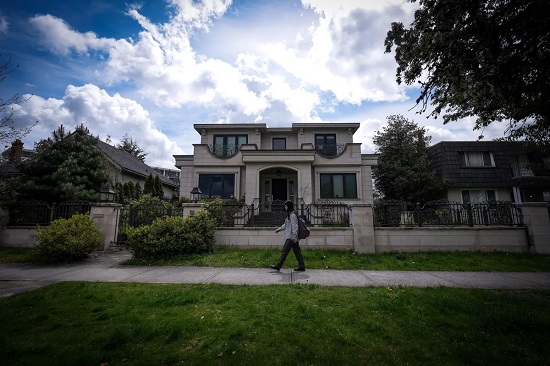 Saturday, May 4, 2024
Saturday, May 4, 2024  Saturday, May 4, 2024
Saturday, May 4, 2024 
There has been much discussion about the need for housing supply and increased density in Vancouver. But what that means for the environment has been given short shrift, say those in the housing industry who are concerned about the sustainability of massive redevelopment.
It matters because buildings and their construction are responsible for nearly one-third of total global energy consumption, according to the International Energy Agency.
“Metro Vancouver and Greater Victoria are experiencing an unprecedented explosion in residential home demolitions,” says Glyn Lewis, “and the process to achieve urban density is proving to be unbelievably wasteful.” The 38-year-old entrepreneur and his company, Renewal Home Development, aim to save existing house, repurpose and retrofit them to be energy efficient and give them a contemporary facelift.
Mr. Lewis says he is all for more density. He just doesn’t like the wastefulness of getting there.
“This year alone, 2,800 single-family homes across Metro Vancouver will end up in local landfills. As a result, over 250,000 old and new growth trees embodied in these homes will be thrown away in the next 12 months,” says Mr. Lewis. “With all the pressures for urban density, this wastefulness will only get worse.”
“We are going through a grand demolition across Metro Vancouver and Greater Victoria and that’s happening because all levels of government are promoting urban densification, because we are trying to address the housing shortage crisis, and to build complete communities, and trying to invest in mass transportation,” he says.
“I agree with the ultimate objective of urban densification. Having single-family homes a block away from a SkyTrain station makes no sense. But the process to achieve that densification is so wasteful. The conversation needs to happen at all levels of government… to figure out how we divert homes from landfills.”
The first step toward a solution, Mr. Lewis says, should be to relocate good homes, the second to incentivize deconstruction. He cites another young company, Unbuilders, which deconstructs houses in Metro Vancouver so next to nothing goes to the landfill. The company also sells reclaimed wood, much of it old growth timber.
Keep reading in The Globe and Mail